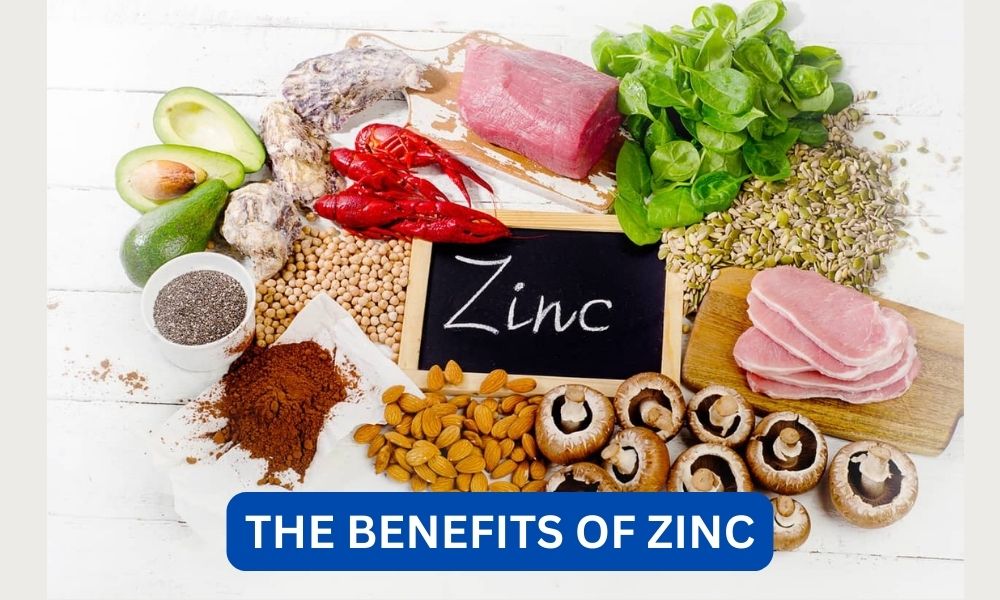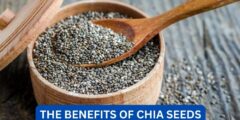Zinc is an essential mineral that plays a crucial role in maintaining our overall health and well-being. It is involved in numerous bodily functions, including immune system support, wound healing, and DNA synthesis. Despite its importance, many people are not aware of the benefits of zinc and how it can positively impact their health. In this article, we will explore the various benefits of zinc and why it is essential to ensure an adequate intake of this mineral.
Contents
What is Zinc?
Zinc is a trace mineral that is naturally present in our bodies and can also be found in various foods. It is the second most abundant trace mineral in the human body, after iron. Zinc is involved in over 300 enzymatic reactions and is essential for the proper functioning of our cells. It is also a vital component of many enzymes, hormones, and proteins.
Our bodies do not store zinc, so it is essential to consume it regularly through our diet. The recommended daily intake of zinc varies depending on age and gender, but on average, adults should aim for 8-11 mg per day. Pregnant and lactating women may require higher amounts of zinc to support the growth and development of their babies.
Read:What are the benefits of beetsThe Benefits of Zinc
Zinc has numerous benefits for our bodies, and its deficiency can lead to various health issues. Let’s take a closer look at some of the most significant benefits of zinc.
1. Boosts Immune System
Zinc is crucial for maintaining a healthy immune system. It plays a vital role in the development and function of immune cells, such as white blood cells and T-cells. These cells are responsible for fighting off infections and diseases, making zinc an essential mineral for preventing illnesses.
A study published in the Journal of Nutrition found that zinc supplementation can reduce the duration and severity of the common cold by up to 33%. Another study showed that zinc can also help prevent respiratory infections in children, making it a valuable mineral for boosting the immune system in both adults and children.
2. Supports Wound Healing
Zinc is essential for wound healing as it plays a crucial role in cell growth and division. It is also involved in collagen synthesis, which is a protein that provides structure to our skin, bones, and muscles. Zinc deficiency can lead to delayed wound healing and an increased risk of infection.
Read:What are the benefits of testosterone?A study published in the Journal of Wound Care found that zinc supplementation can significantly improve wound healing in patients with chronic wounds. Another study showed that zinc can also help reduce the risk of infection in burn patients. These findings highlight the importance of zinc in wound healing and its potential to improve recovery time.
3. Promotes Healthy Skin
Zinc is a popular ingredient in many skincare products, and for a good reason. It plays a crucial role in maintaining healthy skin by regulating oil production, reducing inflammation, and promoting collagen synthesis. Zinc is also known for its antioxidant properties, which can help protect our skin from free radical damage.
A study published in the Journal of Drugs in Dermatology found that zinc supplementation can improve acne symptoms in patients with moderate to severe acne. Another study showed that zinc can also help reduce the severity of eczema symptoms. These findings suggest that zinc can be a beneficial supplement for those struggling with skin issues.
4. Supports Brain Function
Zinc is essential for proper brain function and development. It is involved in neurotransmitter production, which is crucial for communication between brain cells. Zinc also plays a role in regulating mood and behavior, making it a vital mineral for mental health.
Read:What are the benefits of oolong tea?A study published in the Journal of Nutrition, Health & Aging found that zinc supplementation can improve cognitive function in older adults. Another study showed that zinc can also help reduce symptoms of depression in patients with zinc deficiency. These findings suggest that zinc can play a role in maintaining brain health and preventing age-related cognitive decline.
5. May Improve Fertility
Zinc is essential for reproductive health in both men and women. It is involved in the production of hormones, such as testosterone and estrogen, which are crucial for fertility. Zinc also plays a role in sperm production and motility, making it a vital mineral for male fertility.
A study published in the Journal of Human Reproductive Sciences found that zinc supplementation can improve sperm quality and increase sperm count in infertile men. Another study showed that zinc can also improve ovulation and increase the chances of pregnancy in women with polycystic ovary syndrome (PCOS). These findings suggest that zinc can be a valuable supplement for couples struggling with fertility issues.
Food Sources of Zinc
Zinc can be found in a variety of foods, including both plant-based and animal-based sources. Some of the best food sources of zinc include:
- Red meat
- Poultry
- Seafood (oysters, crab, lobster)
- Dairy products (milk, cheese, yogurt)
- Eggs
- Legumes (chickpeas, lentils, beans)
- Nuts and seeds (cashews, pumpkin seeds, almonds)
- Whole grains (oats, quinoa, brown rice)
It is essential to note that plant-based sources of zinc may not be as easily absorbed by our bodies as animal-based sources. This is because plant-based foods contain phytates, which can bind to zinc and reduce its absorption. Therefore, vegetarians and vegans may need to consume higher amounts of zinc to meet their daily requirements.
Zinc Supplements
If you are unable to meet your daily zinc requirements through your diet, you may consider taking a zinc supplement. Zinc supplements are available in various forms, including tablets, capsules, and liquid. It is essential to consult with a healthcare professional before starting any new supplement to determine the appropriate dosage for your needs.
It is also crucial to note that excessive zinc intake can lead to adverse effects, such as nausea, vomiting, and diarrhea. Therefore, it is essential to stick to the recommended daily intake and avoid taking high doses of zinc without medical supervision.
Conclusion:
Zinc is an essential mineral that plays a crucial role in maintaining our overall health and well-being. It is involved in numerous bodily functions, including immune system support, wound healing, and brain function. Zinc deficiency can lead to various health issues, making it essential to ensure an adequate intake of this mineral through our diet or supplements.
By incorporating zinc-rich foods into our diet and considering supplementation if needed, we can reap the many benefits of this vital mineral and support our overall health and well-being.









